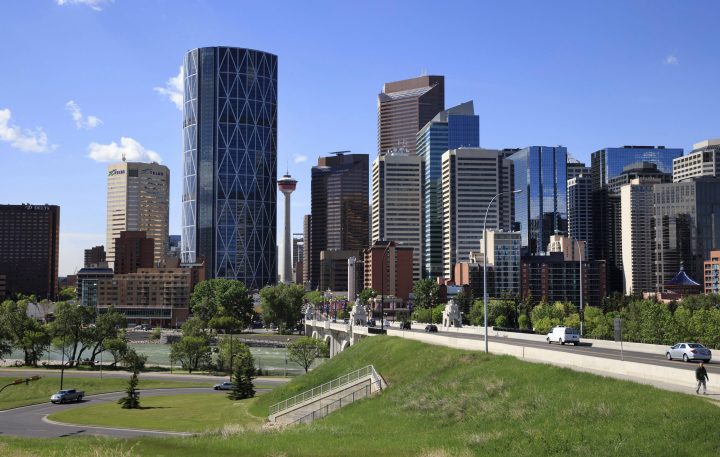Editor’s note: The statement from the Alberta government was incorrectly attributed to the assistant director of communications for the Ministry of Finance and has been correctly attributed to Finance Minister Joe Ceci.

A new report suggests Alberta will have trouble getting back to a balanced budget despite an increase in oil royalties and corporate tax revenues.
The Conference Board of Canada forecast in its fiscal snapshot that Alberta’s economy would grow by more than three per cent this year and 2.3 per cent in 2018. But it said economic growth would not reach pre-recession levels.
It said the biggest turnaround would be in investment, most of which is expected to come from the energy sector.
“We know it’s been a couple of difficult years with the large decline in oil prices and the severe recession in Alberta in 2015 and 2016, but it looks like the fiscal situation will improve a bit over the next two years,” said Marie-Christine Bernard, the associate director of the provincial forecast service for the Conference Board of Canada.
“But there remains some important issues to consider: the deficit will still be quite large over the next two years and net debt is increasing.”
Calgary economist Trevor Tombe said Wednesday that the Conference Board of Canada’s projections are modest.
“I think that throughout this year, so far, we have seen oil prices that are substantially below where they were forecast to be and lower than where the conference board is forecasting them to be… given the lower oil prices we’ve seen, I think the conference board’s numbers and the government’s numbers are on the optimistic side of the deficit forecast.”

Get daily National news
Tombe said each dollar change in the price of oil costs the government more than $300 million.
The Alberta government said in a statement Wednesday it has worked to diversify the economy and create jobs. A spokesperson said that work is reflected in the conference board report.
“We are seeing many positive signs of economic recovery – manufacturing is up, exports are up and employment is up,” the statement from Finance Minister Joe Ceci said.
The non-profit economic think tank forecasts Alberta’s provincial government revenues will grow an average of 6.1 per cent over the next three years and that royalty revenues will nearly triple to $6.1 billion by 2019-20. It said those projections are in line with the provincial government.
WATCH BELOW: Alberta government provides update on province’s fiscal situation

The problem that both Tombe and the conference board point out is that the government budget relies heavily on royalty revenues. Tombe suggests those royalties are likely to be smaller than both the government and the board have projected.
“Oil prices being much lower than the forecast this year almost surely means that royalty revenues will be lower than projected by the conference board and the government,” Tombe said.
He said that combined with a higher Canadian dollar is going to be a problem for the province.
“So, a high dollar plus low oil prices present a very difficult situation for the provincial budget and much more difficult than is reflected in these numbers.”
The statement from the province said oil prices continue to have a big impact on the government’s bottom line.
“However, we have a strong balance sheet with a significant tax advantage and the lowest net-debt-to-GDP ratio in Canada,” Ceci said. “We continue to work to bring down the deficit gradually by keeping spending growth less than population growth, plus inflation and budget prudently, with the use of risk adjustment, to help us weather fluctuations in the price of oil.”
The conference board said the government has tried to reign in program spending. That includes in health care and education, areas that take up a big chunk of the budget. But it said growing demand for health care, for example, will put an increasing strain on the budget.
The board suggests the deficit will remain at $6.8 billion, pushing Alberta’s net debt from $9.5 billion to $44.2 billion by 2019-20. It said the government doesn’t expect to return to a balanced budget until 2023-24.












Comments